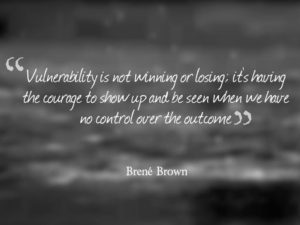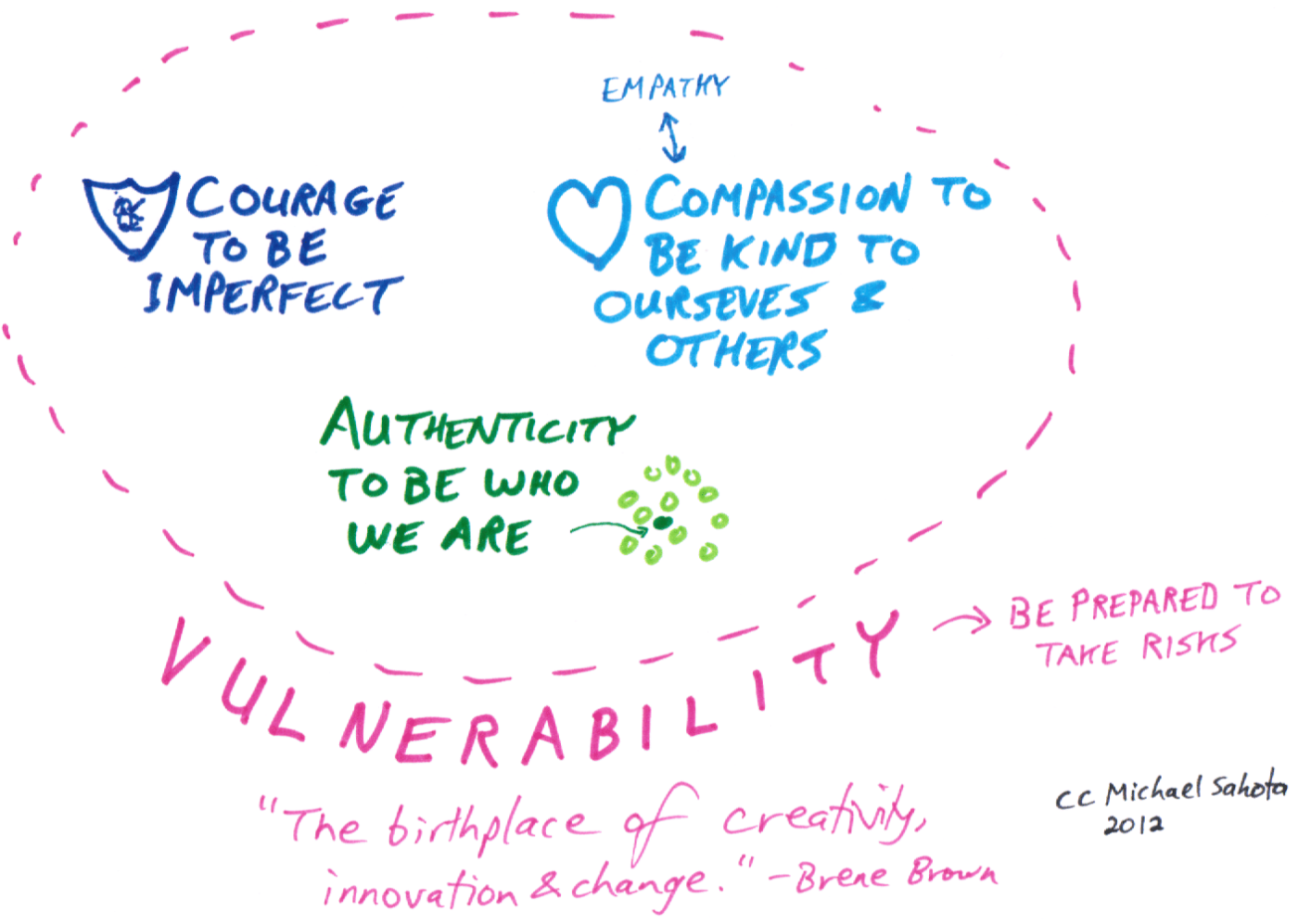This subject is crucial to living well.
The sermon audio is below the text. There are a couple of significant additions in the spoken sermon.
 Sermon preached at Trinity Church, Newport RI; March 29th 2018 (Maundy Thursday) The Reverend Alan Neale; Vulnerability – Excruciating or Exquisite
Sermon preached at Trinity Church, Newport RI; March 29th 2018 (Maundy Thursday) The Reverend Alan Neale; Vulnerability – Excruciating or Exquisite
For over five years this book has been on my shelves un-read, this week I felt moved to read it and I thank God I did – “Daring Greatly, How the Courage to be Vulnerable Transforms the Way We Live, Love, Parent and Lead” by Brene Brown.
It’s reasonable to say that the book is not only a love affair with authentic vulnerability but also an argument that without vulnerability there is never an authentic love affair.
Dr. Brown recounts a conversation with her therapist, “I hate vulnerability. I can’t stand opening myself to getting hurt or being disappointed. It’s excruciating. Vulnerability is complicated. And it’s excruciating. Do you know what I mean?” Diana nods. “Yes, I know vulnerability. I know it well. It is an exquisite emotion.” Brown responds pointedly, “I said it was excruciating, not exquisite.” And thus her journey begins.
These past days I have come to see more clearly than ever that “vulnerability” is a theme that runs deeply, profoundly, constantly through the experience of Maundy Thursday and Good Friday.
The first reading for tonight (Exodus 12, the reading that speaks of “head, legs and inner organs”) describes a people in a state of stark alertness, emergency stations… they are to eat this precious meal but not in a state of comfortable relaxation but rather poised to move at any moment. This is indeed a vulnerable place in which to live… savoring the presence and purpose of God and yet also prepared to experience bereavement, loss in a moment. Yet, would we want to live, can we live in any other way? Brown comments, “Vulnerability is the core, the heart, the center of meaningful human experiences.”
Our second reading (I Corinthians 11) relates the first Lord’s Supper as Jesus literally embodies himself in bread and wine – elements that can be discarded, trod upon, spilt with indifference at best and meanness at worst. In so doing Jesus risks, and has risked ever since, radical abuse and tortuous manipulation. Not long after that first Holy Communion, St. Paul has to charge the Corinthian church to take the bread and wine with careful discernment; and not many centuries after that first Holy Communion men and women (mostly men) are prepared to argue, divide and even kill those who will not accept their understanding of “this is my body” and “this is my blood.” Jesus exhibits radical vulnerability and incurs abuse but… “Vulnerability is the core, the heart, the center of meaningful human experiences.”
And then the Gospel (John 13) –Jesus embraces vulnerability, sheds his dignity in order that he might be the authentic servant. I remember to this day a colleague of mine, Meg Buerkel, who preaching on Maundy Thursday began thus… she came down from the sanctuary, removed her stole and then her alb and sat on the chancel steps.
It was an incredible act of vulnerability but in so doing she captured the dynamic. Of course she did not know how her act would be received and nor did Jesus; of course she did not know whether the clarity of what she did would prevent others from hearing what she wanted to say and nor did Jesus… but “Vulnerability is the core, the heart, the center of meaningful human experiences.”
But the Gospel story is far from over. As I observe Peter’s initial response “You will never wash my feet” so I hear the voice of one who would rather not be entrusted with the vulnerability of another. In the days when church wedding vows included the word “obey” (if only optionally), there was a similar dynamic I observed. After the initial joking and good humor, it generally became obvious that the man did not want such an incredible gift to be laid in his hands… the thought that the one he loved was prepared to become so vulnerable triggered a sense of vulnerability from which he backed away. And thus Peter. Of course (do we not love Peter?), of course once Peter got the sense of the message he was all in… “Lord, wash all of me.”
Dr. Brown comments, “A sense of worthiness inspires us to be vulnerable.” Oh yes, yes indeed… it seems to me the core, the center, the powerhouse that enables Jesus to embrace vulnerability so totally is found in John 13:3 “3Jesus knew that the Father had delivered all things into His hands, and that He had come from God and was returning to God.” Here is that incredible awareness of worthiness that makes it possible to live in vulnerability.
Time only allows to allude to some disclaimers… it is right, good and proper that we distinguish between the vulnerable and the victimized. It is right, good and proper to acknowledge with shame that the very place that honors the vulnerable victor Jesus has all too often abused the vulnerable. And it is right, good and proper to note that we often need support and encouragement to accept his vocation to vulnerability.
But all this and more can be no justification to miss out on the vulnerable life.
Madeleine L’Engle writes, “When we were ‘children’, we used to think that when we were grown up we would no longer be vunerable. But to grow up is to accept vulnerability. To be alive is to be vulnerable” (Walking on Water, Reflections on Faith and Art).
I want to watch and worship this vulnerable Jesus for, as Brown writes, “Vulnerability begets vulnerability; courage is contagious.”
In a 2011 Harvard Business Review Peter Fuda and Richard Badham use a metaphor to describe how leaders spark and sustain change. The metaphor is the ‘snowball’… and it starts to roll when a leader is willing to be vulnerable… this is seen as courageous and inspires others to follow suit.
So, forgive the phrase, a most holy snowball begins tonight as we observed our dear Jesus… being vulnerable with his followers, then and now. His example, His Spirit inspire us to follow suit. AMEN

